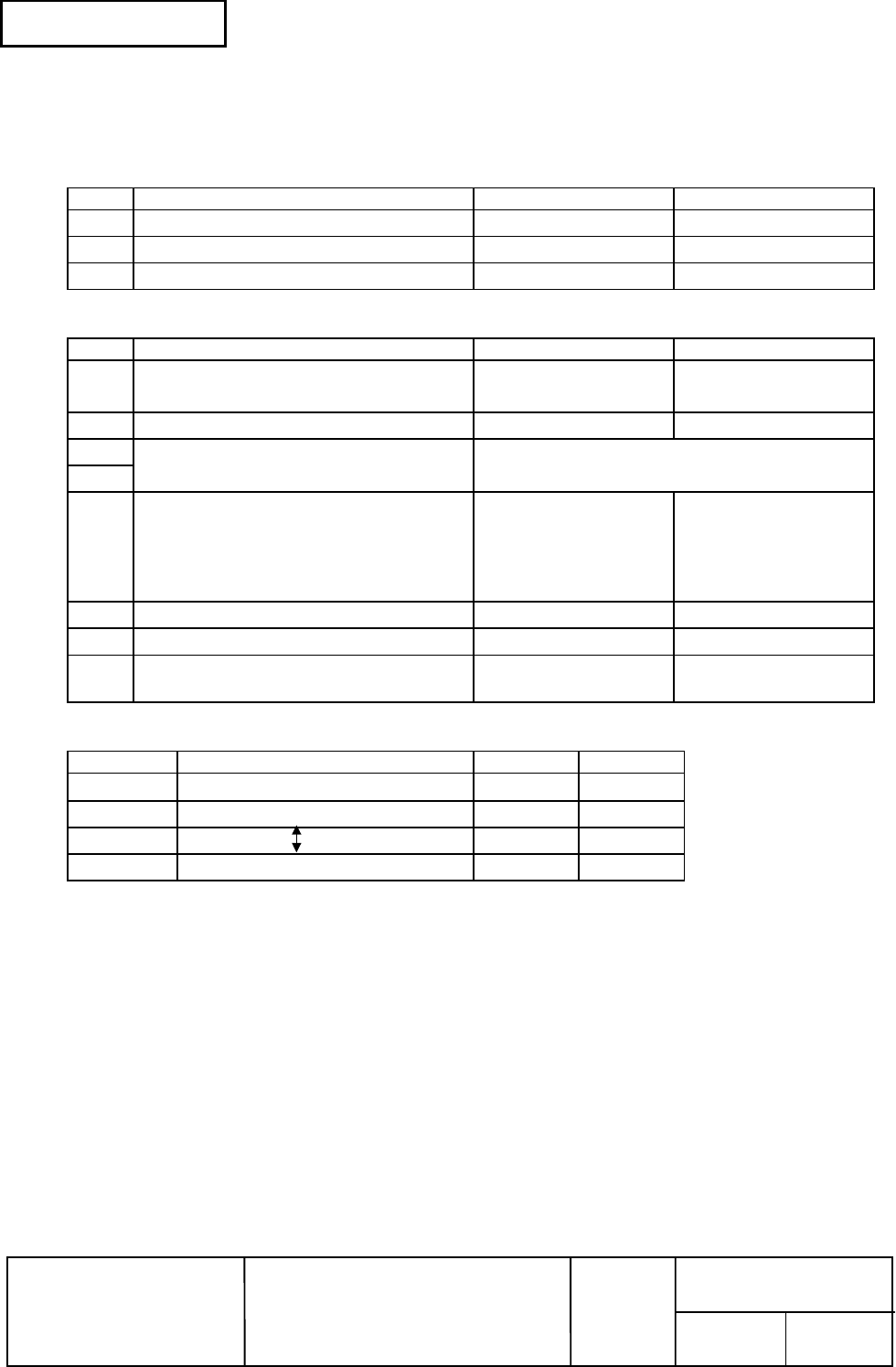
Confidential
EPSON
TITLE
SHEET
REVISION
NO.
SHEETNEXT
B
55 54
TM-T88III series
Specification
(STANDARD)
3.3.3.2 Parallel interface specification
Table 3.3.5 DIP Switch 1
SW Function ON OFF
1 Auto line feed Always enabled Always disabled
2 Receive buffer capacity 45 bytes 4 KB
3-8 Undefined --- ---
Table 3.3.6 DIP Switch 2
SW Function ON OFF
1 Handshaking (BUSY condition) • Receive buffer full
• Offline
• Receive buffer full
2 Reserved (Do not change settings) --- Fixed to Off.
3 Refer to Table 3.3.7
4
Selects print density /
Low power consumption mode
5 Setting the release condition of the
receive buffer BUSY state (this function
is effective when the capacity of the
receive buffer is set to 4 KB.)
Releases the BUSY
state when the
remaining capacity of
the receive buffer
reaches 138 bytes.
Releases the BUSY
state when the
remaining capacity of
the receive buffer
reaches 256 bytes.
6 Reserved (Do not change settings) --- Fixed to Off.
7 Reserved (Do not change settings) --- Fixed to Off.
8 I/F pin 31 reset signal
(Do not change settings)
Fixed to On ---
Table 3.3.7 DIP Switch 2-3 and 2-4
Level Function SW 2-3 SW 2-4
−
Low power consumption mode ON ON
1 Print density (Normal) OFF OFF
2 ON OFF
3 Print density (Dark) OFF ON
NOTES: • Changes in DIP switch settings (excluding switch 2-8, interface reset signal) are
recognized only when the printer power is turned on or when the printer is reset by using
the interface. If the DIP switch setting is changed after the printer power is turned on,
the change does not take effect until the printer is turned on again or is reset.
• If the DIP switch 2-8 is turned on while the printer power is turned on, the printer may be
reset, depending on the signal state. DIP switches should not be changed while the
printer power is on.
• If the print density is set to level 2 or 3, printing speed is inclined to be low speed.
• In a low power consumption, printing speed is fixed to 70 mm/s.


















